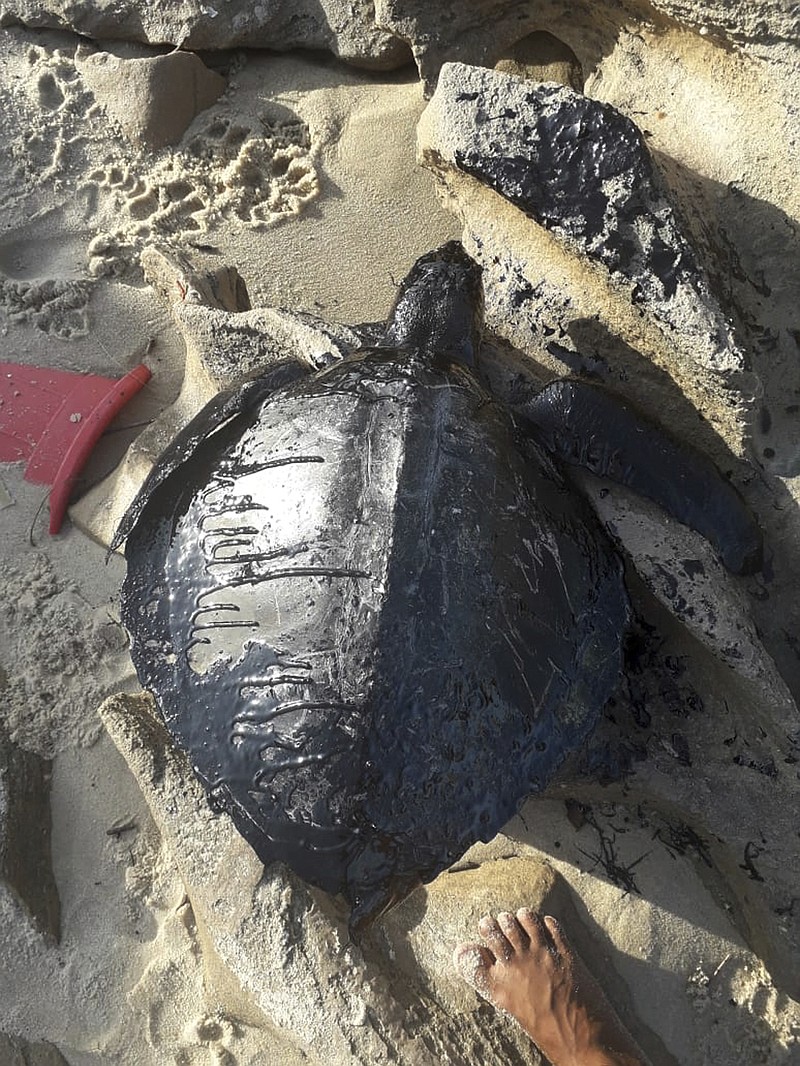RIO DE JANEIRO (AP) — The oil that has been polluting Brazil’s northeastern beaches since early September is likely coming from Venezuela, according to a report by Brazil’s state oil company cited by the country’s environment minister.
The oil sludge has now reached 61 municipalities in nine Brazilian states, contaminating more than 130 beaches — a disaster Brazilian officials called “unheard of.”
The oil “very probably comes from Venezuela, as says the Petrobras study,” Brazilian environment minister Ricardo Salles told members of the lower house of Congress’ environmental commission.
Salles said the oil was transported on a foreign boat navigating close to the Brazilian coast, but he stressed the cause of the spill remained unknown.
As of late Monday, authorities had retrieved over 130 tons of sludge, which has killed at least 10 turtles.
Brazil’s environmental protection agency said that could just be small fraction of the oil spilled, noting there are about 1,242 miles of coastal line to monitor.
Environmental experts fear the oil has come into contact with many more marine animals, and it will damage coral and marine life. Studies are underway.
“In such cases of emergency, it is fundamental to identify the source, and then try and mitigate contamination,” said Marcelo Amorim, who is part of the environmental agency’s emergency coordination unit.
Speaking from the state of Sergipe, one of the hardest hit, Amorim said there was no way to know how much more oil could make its way to Brazil’s shores.
Sergipe authorities declared a state of emergency and recommended swimmers as well as fishermen stay away from polluted beaches.
Testifying in congress Tuesday, Petrobras president Roberto Castello Branco called the oil spills a “very worrying disaster” with no signs of receding.
Officials said the oil has been particularly hard to track as it floats under the surface of the water and can’t be easily detected from planes. Clouds in the area have also limited the use of satellites images, Amorim said.
Brazil’s navy is in charge of the investigation into the origin of the oil spills, while the federal police force is looking into possible criminal charges.
Petrobras has been helping authorities in their investigations, examining oil samples and cleaning up beaches.

